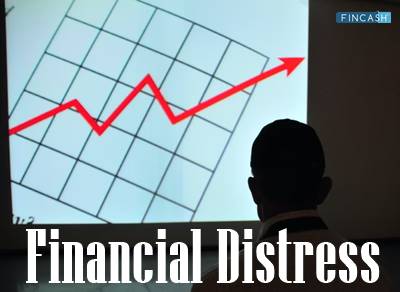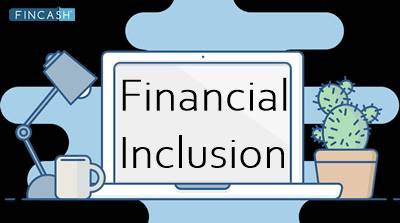
Table of Contents
How to Deal with Financial Stress?
At some point, everybody goes through stress pertaining to money matters. On top of that, for the last few years, with varying issues occurring across the world, including the pandemic and wars, millions of people have faced financial difficulties.

Thus, money stress remains a widespread and enduring form of stress in the world. Many factors, like the cost of education, raising children, the burden of debts, poor budgeting and so on, can lead to financial stress. Therefore, financial management has become an important aspect of every adult, whether employed or not currently. After all, financial management helps in sticking to the budget.
So, to help you out in understanding this concept, this financial stress article covers all the aspects related to it for a better understanding of the topic.
What is Financial Stress?
A condition of concern, anxiety, or emotional strain connected to money, debt, and impending or existing costs is referred to as financial stress. A common source of stress is money.
Losing your job or being retrenched, long-term unemployment, being unable to find full-time work, being unable to pay your expenses, or not being able to cope with rising living costs are all financial stress examples.
Financial problems, like any other form of severe stress, can have a significant impact on your mental and physical health, relationships, and well‐being. According to financial stress research, in India, more than half of employees say they are stressed in their daily lives, which is higher than the global average.
Financial Stress Symptoms
Financial stress has symptoms that are similar to anxiety and other types of stress, but it affects one's thoughts, feelings, and behaviours in relation to money. If you are experiencing any of the following symptoms, these can be influencing your life:
- Financial disagreements with family and friends
- Avoiding friends and cancelling social meetups
- Guilt over spending money on non-essential stuff
- Anxiety or excessive worrying
- Facing difficulty in sleeping
- Feeling shameful or embarrassed
- Increased debt stress
- Feeling out of control with your finances
- Receiving legal action for debt collection
- Insufficient Income to fulfil the expenditure
- Future despair
Talk to our investment specialist
Effects of Financial Stress
Financial stress, synonym for chronic stress, can have a serious influence on your health and well-being. When the level of financial stress is unbearable, your mind, body, and social life might suffer. In such a scenario, you may also have to deal with the following conditions.
Sleep Disorder or Insomnia
Money worries can cause insomnia or keep you awake at night. This forms a vicious cycle, as lack of sleep makes it more difficult to cope with stress's consequences.
Weight Gain or Weight Loss
Stress can affect your appetite, leading to overeating or skipping meals to save money. Financial problems might disrupt your typical eating patterns as well.
Unhealthy Coping Methods
Drinking too much, misusing prescription or illicit drugs, gambling, or overeating are all unhealthy coping mechanisms.
Health Problems
Headaches, gastrointestinal issues, diabetes, high blood pressure, and heart disease are some of the physical ailments that people suffer from. Money worries can induce you to postpone or avoid seeing a doctor in cases where healthcare is not provided for free.
Anxiety
Without money, you may feel insecure and nervous. Worrying about outstanding debts or income loss can lead to anxiety symptoms, including a racing heart, sweating, trembling, or even panic attacks.
Relationship Issues
The most prevalent source of conflict between partners is money. Financial stress theory believes that lack of money can make you impatient and furious. It may also impact your interest in physical relations and erode the foundations of even the strongest relationships if left uncontrolled.
Isolation
Financial troubles can clip your wings, causing you to withdraw from friends, limit your social life, and retreat into your shell, all of which will further exacerbate your stress.
Depression
Living under the shadow of financial difficulties can leave anybody feeling depressed, despondent, and unable to concentrate or make decisions. Financial stress and depression can be terrifying. According to research, those who are in debt are more than twice as likely to suffer from depression.
Financial Stress and Mental Health
Financial stress and mental health are correlated. It is a type of chronic stress which has an impact on both physical and mental health. Indeed, the symptoms might be as severe as Post-Traumatic Stress Disorder (PTSD).
When you feel that you can't keep up with your bills, no matter how hard you work, your self-esteem and feeling of self-efficacy might suffer. It might cause you to feel isolated from your friends and family, making you want to stay at home and miss out on parties and activities.
It can also lead to you spending all of your time and emotional energy worrying about bills, waiting for your next paycheque, or whether you'll be able to deal with an emergency if one occurs, and even affecting your mental health.
Tips to Cope up with Financial Stress
Learning to deal with financial stress and manage your finances properly can help you feel in charge of your life, decrease stress, and build a more secure future. To cope with financial stress, consider the following tips:
Relax Yourself
It is obvious that you can't improve your financial condition within a minute, but you can change your viewpoint and your current stress level. Take a few deep breaths, have a little snack, or SIP a glass of water to relax. Share your financial concerns with a trustworthy buddy if you need to vent.
Budget Decluttering
Since life is unpredictable, monthly budget check-ups are critical to improving your financial health. Set aside some time to schedule, organize, and declutter all of the money that comes in and out of your Bank account to regain control of your finances. The more you have control over, the less stressed you will be.
Financial Stress Management
Managing financial stress is a two-pronged task. There's money to deal with, and then there's stress to deal with. Mindfulness techniques, such as breathwork, Yoga, or meditation, are an excellent approach to reducing stress. Eating a balanced diet, getting enough sleep every night, and engaging in physical activity have all been related to lower stress levels.
Seek Assistance
Having a friend or family who is experienced in budgeting can be sought out for help. Read personal financial blogs and books to feel more secure and in charge of your finances. See if you can split some expenditures with a family member or ask a friend to help you in exploring new ways to generate money.
Initiate Gently
Don't try to revamp your budget at once completely. Like any other skill, money management is developed like the development of excellent habits. So, initiate to make changes gently. The new habits you're forming may not appear to be significant at the moment, but they'll be more helpful in the long run and will rapidly mount up.
How to Prevent Financial Stress?
As previously mentioned, mindfulness, budget decluttering, self-awareness and your support system can assist you in coping with financial stress. Still, preparation and prevention can assist you in staying on top of your money in the first place. Here are some strategies for gaining financial control and avoiding financial stress:
1. Generate Extra Income Source
If your finances make you anxious, you're probably convinced that you need to increase your income. However, figuring out how to improve your Financial Assets without causing yourself undue worry can be difficult.
Fortunately, there are various options for increasing your income while relieving stress. Some extra income sources are side gigs, micro jobs like social media evaluator, manager, translator, etc.
2. Debt Cycle Analysis
Once you understand financial stress meaning, understanding your debt is the next step toward getting out of it. According to research, you can pay off your debt faster if you pay one account at a time and start with your lowest obligations first.
Conduct a thorough analysis and keep an eye on interest rates. To avoid paying higher costs over time, it's best first to pay off the debt with the highest interest rate.
3. Prepare a Budget
Creating a budget is the most straightforward method to see where your money is going. With your phone's notes app or using a notepad, one can keep track of expenses to write what came in swiftly and went out that day.
Use a basic budgeting strategy such as a 50/30/20 budget to save your money. In it, you spend around half of your after-tax income on essentials, no more than 30% on wants, and a minimum of 20% on savings and debt repayment.
4. Create an Emergency Fund
Even the slightest emergency might put you in debt if you don't have money saved up for rainy days. Open a Savings Account and use it solely for unforeseen costs. If you don't have a financial objective, most experts advocate saving three to six months' costs.
As a result, the uncertainty of an emergency or job loss will no longer be a persistent cause of worry
The Bottom Line
On several levels, financial stress can be daunting. You can be caught off guard by emotional strain, which can keep you from feeling capable and in charge of your costs. Managing money stress depression, on the other hand, is easier when negative emotions are removed from the picture.
Even though your circumstances are dire right now, your worth isn't reflected by the balance in your bank account. You can change your spending patterns, make better financial decisions, and increase your bank balance.
All efforts have been made to ensure the information provided here is accurate. However, no guarantees are made regarding correctness of data. Please verify with scheme information document before making any investment.












